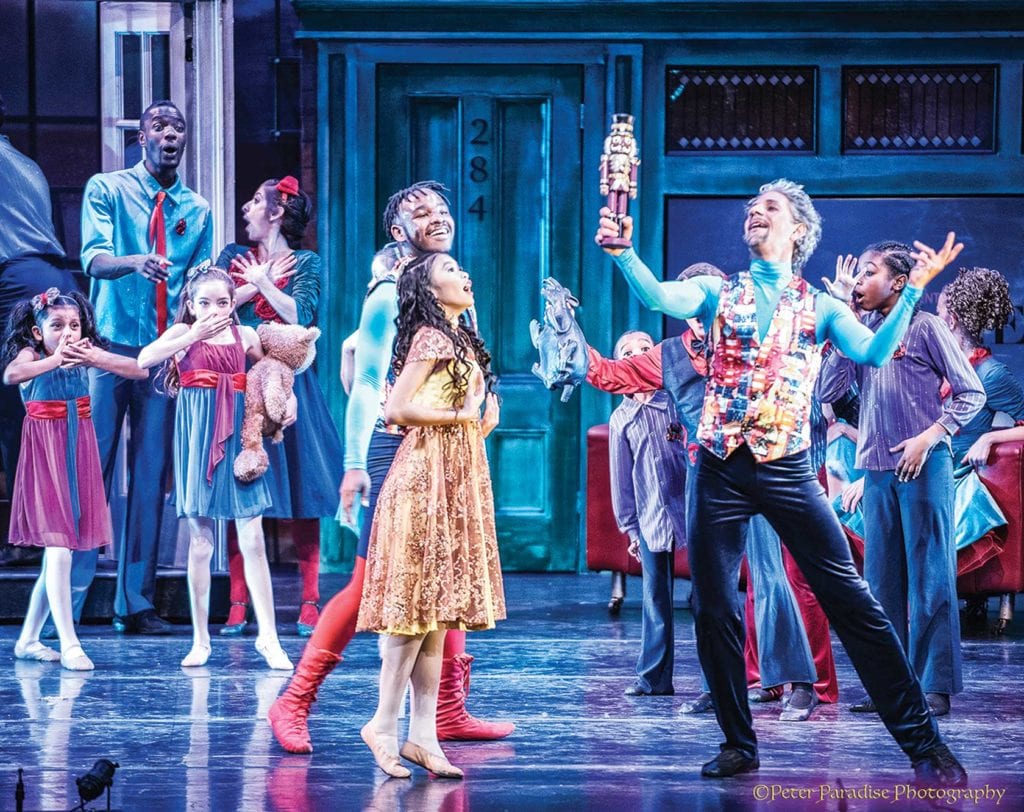‘URBAN NUTCRACKER’ — Bringing diversity to the Boston stage for 19 years

Tony Williams’ “Urban Nutcracker” will tap, vogue and spin its way onto the stage at the Boch Center Shubert Theater Dec. 19 through 28. This is the production’s 19th year running and its second year at the Shubert, but the show’s history will always be rooted in Dorchester where “Urban Nutcracker” originated at the Strand Theatre.
Williams was the first African American principle dancer in the Boston Ballet and as a result, grew into his career knowing firsthand how challenging it is to bring diversity into dance spaces. As a result, his dance teaching practice and the “Urban Nutcracker” have always had the goal of promoting diversity on stage.
“If you go to any other mainstream theater in Boston, you’ll see that 90-plus percent of the audiences are non-diverse,” says Williams. “And outside of ‘Black Nativity,’ ‘Urban Nutcracker’ and ‘Alvin Ailey Dance Theater,’ there aren’t very many shows that are reflective of the population of Greater Boston.” And this production truly is representative of the Boston community. Not only is the cast pulled from the local talent pool, almost 25 percent of the children’s cast is related to one another. There are five brother-sister teams performing together on stage this year.
The show isn’t just about providing dancers of color with opportunities. It’s also about making the show accessible for local audiences. As a result, the story is set right here in Boston, with all the trimmings of the city, including the Citgo sign, the Public Garden, a Dorchester street corner and the Top of the Hub. Tchaikovsky shares the score with jazzy notes by Duke Ellington, an old-school doo-wop group and hip-hop beats.
This year, “Urban Nutcracker” features some changes. Clara has been upgraded to a new lead character, Ruby, who is a teenager. Though this change was made because of the talent pool, it also serves to promote the prolonging of childhood wonder as long as possible. A new number based on the classic children’s book “Make Way for Ducklings” will also debut, and the Russian dance sequence has been re-choreographed.
As the production has grown into new spaces and new phases, so has Williams’ ability to bring in the community. “This year one of my sponsors, Adage Capital, sponsored 3,000 free tickets for community groups, which are being distributed through the Boch Center,” he says. “It’s for folks that wouldn’t have the opportunity otherwise to see the show.”
Although the show always has provided some free tickets for accessibility, this is the first time the program is sponsored, and it’s the largest number of tickets they’ve ever been able to give away. Williams wants to keep the show as open to audiences as possible despite its move from the Strand to downtown Boston. He says, “It’s good for people to come and see the diversity on stage, and also, when they look around themselves, to see the diversity in the audience.”








